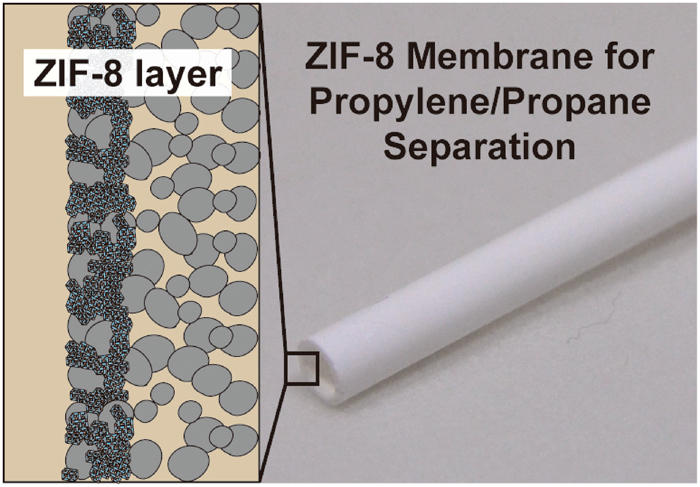Abstract
The counter diffusion method is a promising approach for the preparation of zeolitic imidazolate framework-8 (ZIF-8) membranes for propylene/propane separation. The effects of the reaction temperature on the structure and permeation properties of ZIF-8 membranes were evaluated to explore the mechanism of membrane formation. ZIF-8 membranes were prepared by the counter diffusion method using dimethylformamide as a solvent in order to control the reaction temperature within the range 25-125 °C. The ZIF-8 formation reaction and interdiffusion of the solutes are facilitated at higher reaction temperatures; the opposing effects of these factors strongly influence the membrane structure and permeation properties. The thickness of the ZIF-8 layer formed in the outermost section of the resultant ZIF-8 membranes decreased from 70 to 40 μm and was characterized by a definite layer structures with increasing reaction temperature. A propylene permeance of 2.2 × 10−9 mol m−2 s−1 Pa−1 with a propylene propane selectivity of around 10 was obtained in the binary gas permeation analysis of the ZIF-8 membrane prepared at 100 °C. The structure of the membranes and the effect of the total feed pressure, propylene fraction in the feed, and temperature dependence on the binary permeation properties were thoroughly characterized.



